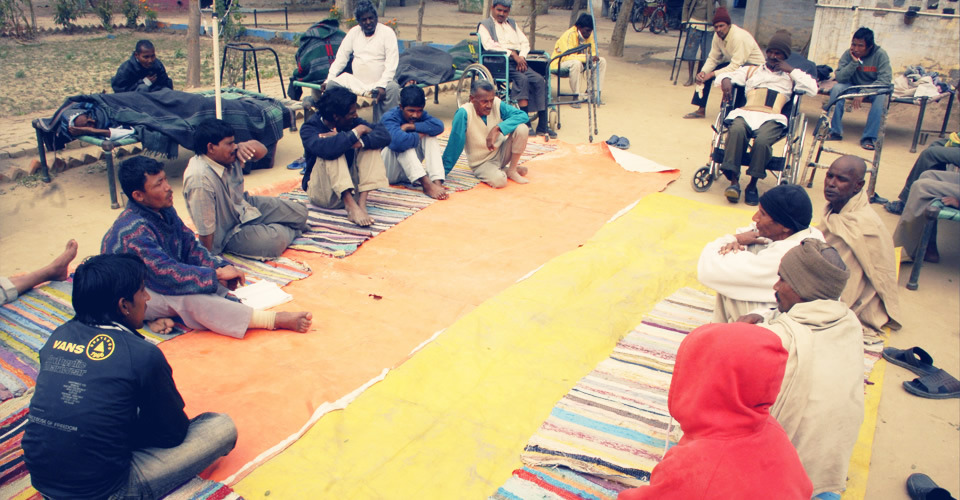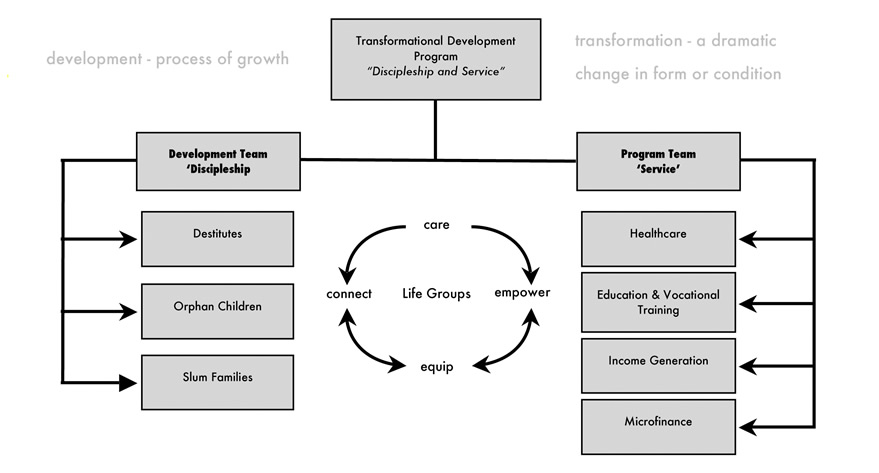
Our Approach
Community Hubs
Our approach to community development is to create ‘community hubs’ that act as a nexus point for people to come together, collaborate and create community led solutions to the challenges they face. Our endeavour is to be a catalyst and to partner with the community on their journey of transformation.
Sewa Ashram is committed to serving the poorest of the poor within the context of community life, where one will find meaning, true community, intimacy and freedom. We provide an open door that is not based on religion, caste, race, ethnicity or gender. Our hope is to inspire people to develop a better understanding of who they are and their ability to contribute to society.
Our aim is provide the services needed to equip people with tools that will lead the ultra poor and their communities to empowerment.
Development Team
Our community development program is based on partnership and service. Its objective is to partner with the ultra poor in their transformational journey and to care, connect, equip and empower them through self-help groups (Sewa Life Groups).
The focus of the development team is relationships. Our development team builds relationship within the community and identifies role models to assist them in caring, connecting, equipping and empowering the community.
Program Team
Ultra poverty tends to be chronic and inter-generational and the ultra poor are often left out of mainstream development programs. They are the ‘invisible’ parts of the society where multiple deprivations are the norm – health, education, clean water and sanitation – where the deprivations not only lead to persistent impoverishment but also cause future destitution.
Our program team looks to provide the interventions needed, from healthcare to microfinance.
Life Groups
Our Sewa Life Groups are made up of between 6-15 community members and is facilitated by one of our development workers and a community role model.
The key focus is building relationship, accountability, capacity and planning a development program for each member in the group.
Discussions in the life groups include topics such as life stories, family planning, hygiene, healthcare, living with HIV and TB, financial skills, life skills and social issues.
The life groups follow a cycle of care, connect, equip and empower.


